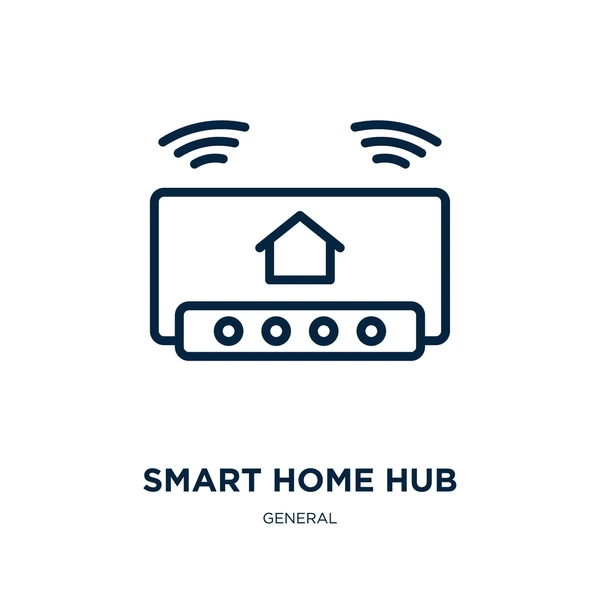Explore how mental health tech is changing therapy, self-care, and emotional support. Discover the top innovations improving mental wellness in 2025.
Mental Health Tech in 2025: Innovations Transforming Well-Being

As you look ahead to 2025, you’ll find the landscape of mental health care dramatically transformed by innovative technologies. Artificial intelligence, virtual reality, and advanced wearables are poised to revolutionize how you monitor, manage, and improve your psychological well-being. From AI therapists available 24/7 to VR exposure therapy for phobias, you’ll have an unprecedented array of options at your fingertips.
In this article, you’ll explore the cutting-edge mental health technologies on the horizon and how they may reshape your approach to emotional wellness in the coming years.
What Is Mental Health Tech and Why It Matters Today

According to National Institute of Mental Health, Mental health technology encompasses a wide range of digital tools and innovations designed to support psychological well-being and treat mental health conditions. From smartphone apps to virtual reality therapy, these advancements are revolutionizing how we approach mental health care.
The Digital Revolution in Mental Wellness
Today’s mental health tech landscape includes AI-powered chatbots offering 24/7 support, wearable devices tracking mood and stress levels, and teletherapy platforms connecting patients with professionals remotely. These tools are making mental health resources more accessible, affordable, and personalized than ever before.
Addressing the Global Mental Health Crisis
Mental health tech matters now more than ever as we face a growing global mental health crisis. With traditional care systems strained, innovative digital solutions are stepping in to bridge gaps in access and reduce stigma. They’re empowering individuals to take charge of their mental well-being, providing early intervention tools, and supporting clinicians in delivering more effective treatments.
The Future of Care
As we look towards 2025, mental health tech promises to transform the field further. By leveraging data analytics, artificial intelligence, and emerging technologies, these innovations have the potential to revolutionize diagnosis, treatment, and prevention strategies for mental health disorders.
How Mental Health Tech Is Powering Digital Therapy Platforms

AI-Driven Personalization
Digital therapy platforms are leveraging artificial intelligence to deliver personalized mental health support. These advanced systems analyze user data, including mood patterns, behavioral trends, and therapy preferences, to tailor interventions and recommendations. By 2025, you’ll likely see AI algorithms that can predict potential mental health challenges and proactively suggest coping strategies.
Virtual Reality Therapy Sessions
Virtual reality (VR) is revolutionizing the therapeutic landscape. You can now immerse yourself in controlled environments designed to address specific mental health concerns. From exposure therapy for phobias to mindfulness exercises in serene digital landscapes, VR offers a safe and engaging way to confront challenges and practice coping skills. As VR technology becomes more sophisticated, you’ll experience increasingly realistic and effective virtual therapy sessions.
24/7 Chatbot Support
AI-powered chatbots are evolving to provide round-the-clock mental health support. These digital companions offer a judgment-free space for you to express concerns, receive immediate emotional support, and access coping techniques. By 2025, chatbots will likely incorporate more advanced natural language processing, allowing for more nuanced and empathetic interactions that complement human therapy sessions.
The Rise of Mental Health Tech in Mobile Apps

In 2025, mobile apps have become a cornerstone of mental health support, offering unprecedented access to resources and interventions. These pocket-sized wellness companions are transforming how we approach mental well-being, providing personalized care at our fingertips.
AI-Powered Mood Tracking
Sophisticated AI algorithms now analyze user data to identify patterns in mood fluctuations. These apps offer real-time insights, alerting users to potential triggers and suggesting proactive coping strategies. By leveraging machine learning, they continually refine their understanding of each individual’s unique mental health landscape.
Virtual Reality Therapy Sessions
Mobile VR modules have revolutionized therapy delivery. Users can now immerse themselves in calming environments or face phobias in controlled settings, all from the comfort of their homes. These interactive experiences, guided by AI therapists, provide a safe space for emotional processing and skill-building.
Biometric Integration for Holistic Care
Mental health apps now seamlessly integrate with wearable devices, collecting biometric data to paint a comprehensive picture of well-being. By monitoring sleep patterns, heart rate variability, and stress levels, these apps offer a holistic approach to mental health, bridging the gap between physical and emotional wellness.
Using Mental Health Tech for Virtual Mental Health Services

Expanding Access to Care
Virtual mental health services are revolutionizing access to care in 2025. Through secure video platforms and AI-powered chatbots, you can now connect with licensed therapists from the comfort of your home. This technology breaks down geographical barriers, allowing rural communities and underserved populations to receive quality mental health support. Additionally, virtual services often come at a lower cost, making therapy more affordable and accessible to a wider range of individuals.
Enhanced Treatment Options
Mental health tech is not just about replicating in-person therapy online. You now have access to innovative treatment modalities tailored for the digital space. Virtual reality exposure therapy allows you to confront phobias in a controlled environment. AI-driven cognitive behavioral therapy apps provide 24/7 support, helping you manage symptoms between sessions. These tech-enabled treatments complement traditional therapy, offering a more comprehensive approach to mental wellness.
Personalized Care Through Data
By leveraging big data and machine learning, virtual mental health services can offer highly personalized care. Wearable devices track your mood, sleep patterns, and stress levels, providing valuable insights to both you and your therapist. This data-driven approach allows for more targeted interventions and helps you better understand your mental health journey. As technology continues to advance, you can expect even more sophisticated and tailored virtual mental health services in the coming years.
AI in Mental Health Tech: Smart Tools for Personalized Care

Intelligent Chatbots and Virtual Therapists
As we approach 2025, artificial intelligence is revolutionizing mental health care through advanced chatbots and virtual therapists. These AI-powered tools offer 24/7 support, providing immediate assistance to those in need. By analyzing speech patterns, facial expressions, and text inputs, these smart systems can detect emotional states and offer tailored interventions. They’re not replacing human therapists, but rather augmenting care by providing continuous monitoring and support between sessions.
Predictive Analytics for Early Intervention
AI’s predictive capabilities are transforming how we approach mental health prevention. By analyzing vast amounts of data from wearables, social media activity, and health records, AI algorithms can identify early warning signs of mental health issues. This allows for proactive intervention before conditions worsen. For example, changes in sleep patterns or social media usage might trigger an alert, prompting a check-in or suggested coping strategies.
Personalized Treatment Plans
AI is ushering in an era of truly personalized mental health care. By processing an individual’s genetic information, lifestyle data, and treatment history, AI systems can recommend highly tailored treatment plans. These might include specific medications, therapy types, or lifestyle changes most likely to be effective for each unique patient. This data-driven approach promises to improve treatment outcomes and reduce the trial-and-error often associated with mental health care.
Mental Health Tech Meets Wearables: Real-Time Wellness Tracking

In 2025, wearable technology will revolutionize mental health monitoring and support. These sophisticated devices will seamlessly integrate into our daily lives, offering unprecedented insights into our psychological well-being.
Continuous Emotional Monitoring
Advanced sensors in smartwatches and fitness trackers will detect subtle physiological changes associated with mood fluctuations. By analyzing heart rate variability, skin conductance, and sleep patterns, these devices will provide real-time emotional state assessments. You’ll receive gentle nudges to practice mindfulness or reach out for support when signs of stress or anxiety are detected.
Personalized Intervention Strategies
AI-powered algorithms will analyze your data to create tailored mental health plans. These smart wearables will learn your unique triggers and coping mechanisms, suggesting personalized interventions at the most effective moments. Whether it’s recommending a quick breathing exercise during a stressful meeting or scheduling a therapist check-in after a series of restless nights, your wearable will become an indispensable mental health ally.

Seamless Integration with Professional Care
Your wearable’s data will seamlessly integrate with your healthcare provider’s systems, offering a comprehensive view of your mental health journey. This continuous stream of information will enable more accurate diagnoses and treatment plans, bridging the gap between sporadic doctor visits and your day-to-day experiences.
Conclusion
As you look ahead to 2025, the future of mental health tech is bright with promise. From AI-powered therapy chatbots to brain-computer interfaces, innovations on the horizon have the potential to revolutionize how you care for your psychological well-being.
While ethical considerations around data privacy and equitable access remain crucial, these emerging tools offer hope for more personalized, accessible, and effective mental health support.
By staying informed about these developments and advocating for responsible implementation, you can help shape a future where technology enhances rather than replaces human connection in mental healthcare. The coming years may transform how you understand and nurture your own mental health.





Your point of view caught my eye and was very interesting. Thanks. I have a question for you.
Thank you, your article surprised me, there is such an excellent point of view. Thank you for sharing, I learned a lot.
Thank you for your sharing. I am worried that I lack creative ideas. It is your article that makes me full of hope. Thank you. But, I have a question, can you help me?